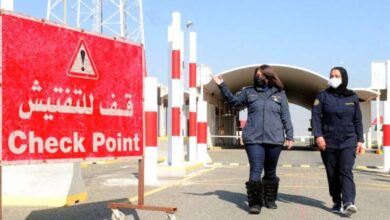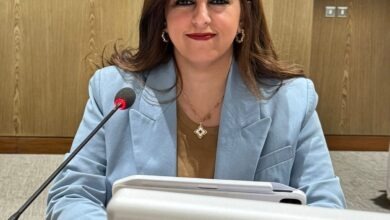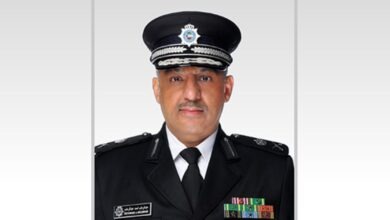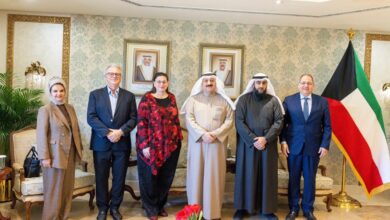Kuwait a beacon of peace, democracy, in a turbulent region
As Kuwait celebrates the 63rd anniversary of National Day and commemorates the historic 33rd anniversary of Liberation Day, The Times Kuwait extends its congratulations and felicitations to His Highness the Amir Sheikh Mishal Al-Ahmad Al-Jaber Al-Sabah, to His Highness the Prime Minister Sheikh Dr. Muhammad Sabah Al-Salem Al-Sabah, to the Government of the State of Kuwait, and to the honorable people of Kuwait, wishing everyone peace, prosperity and progress.
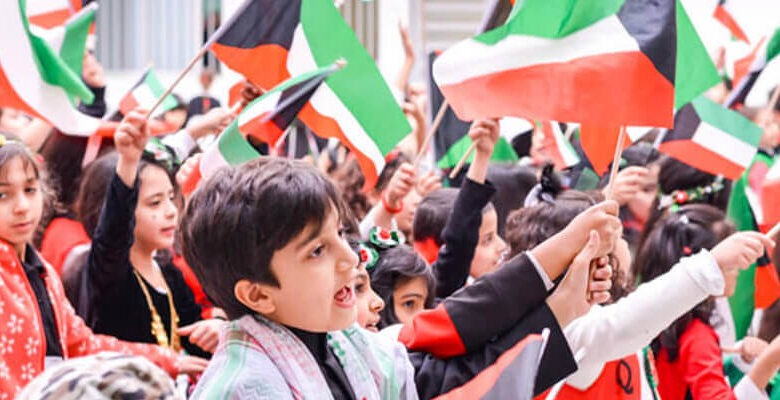
THE TIMES KUWAIT REPORT
In 1961, under the sagacious leadership of the first Amir of Kuwait, Sheikh Abdullah Al-Salem Al-Sabah, the country ventured out on an independent democratic path, guided by a constitutional framework that paved the way for an elected parliament, free media, and an involved citizenry. The commemoration of National Day each year marks this independent tryst with destiny following Kuwait’s abrogation of the British protectorate status that it held since 1899.
Every 25th February, citizens come out in an unbridled display of fervent patriotism and a spirit of camaraderie marked by parades, flag wavings, songs and dances, fireworks and other celebratory events. Since 1991, when the country’s sovereignty was restored after nearly seven months of brutal aggression and occupation by Iraqi forces, Kuwait has also commemorated its Liberation Day on 26th February.
Amid the celebrations and jubilations to mark these two triumphant milestones in the country’s history, it is also important to take time and reflect on all that Kuwait has achieved as a democratic nation over the past six decades, and how far we still need to go in order to realize the full benefits that democracy, democratic traditions, equality and inclusiveness promises.
A flipback through recent Kuwaiti history reveals that as a nation we have come a long way from 19 July 1961, when the country became independent and chose a democratic system of governance. Today, Kuwait is a constitutional monarchy with a parliamentary system of government based on democratic principles and a vibrant political and social milieu.
It is worth noting that democratic concepts were not transplanted in Kuwait, the country has a long history of political participation and freedom of expression. The vestiges of democracy in Kuwait were evident as early as the late 1920s, which eventually resulted in the first elections to a legislative council being held in 1938. In a probable harbinger of how future politics would evolve, the legislative council was dissolved a year later by the then ruler Sheikh Ahmed Al-Jaber Al-Sabah.
The discovery of oil in 1939 and its first export in 1947 changed the fortunes and future of Kuwait.
In 1961, following Kuwait’s independence, Sheikh Abdullah Al-Salem Al-Sabah, the first Amir of Kuwait, ordered elections be held to form a Constitutional Assembly. The Assembly then convened over several months to draft the constitution, which was then signed and promulgated by Sheikh Abdullah on 11 November 1962.
The constitution framed Kuwait’s system of governance as a parliamentary democracy, ‘where sovereignty rests with the nation, which is the source of power’. The constitution guarantees freedom of speech, assembly, and association that gave rise to the dynamic political culture evident in the country today. In line with the constitutional stipulation, elections to a unicameral National Assembly were held in January 1963.
From the 1960s well into the 1980s, Kuwait experienced a period of oil-driven prosperity that allowed the country to fashion a ‘cradle-to-grave’ welfare state that catered to every need of citizens, pampering them with lavish subsidies and offering free childcare, education, health, housing and job security to all citizens. The immense oil wealth also propelled major public-work programs that attracted a large influx of foreign workers mainly from Egypt, India and Palestine.
During this period, Kuwait was recognized in the region and beyond as an epitome of progress and development, and a pioneer in the cultural renaissance of the Arab world. Theater, art and literature flourished, and the media expressed and propounded ideas and ideologies that were until then taboo in much of the region. The democratic and liberal environment in the country also made Kuwait an ideal crucible to test various political thoughts and ideologies making way in the region.
It is to the credit of Sheikh Abdullah Al-Salem Al-Sabah and to the founding fathers of the nation who crafted a versatile constitution for the country that Kuwait continues to remain an independent democratic nation committed to its constitutional principles. In honor of Sheikh Abdullah and his role in founding a democratic, constitutional nation, the celebration of Independence Day was shifted 19 July to 25 February, the day of Sheikh Abdullah Al-Salem’s accession in 1950.
Today, Kuwait is a democratic outlier in the region with a powerful elected parliament, an empowered civil society. and a social milieu rooted in liberal norms of pluralism and openness. Since independence in 1961, the country has also been able to preserve and perpetuate its democratic credentials in the face of often radical regional and global economic, social and political transformations.
In Kuwait, today we have all the accouterments of a functioning democracy — a magnificent and iconic parliament building, a quadrennial election exercise, and universal suffrage among citizens. Kuwait also enjoys a spirited media space that reports, generally unfettered, on political, economic, social and cultural issues and events unfolding in Kuwait and around the world.
Kuwait also has a vociferous and contentious parliament that constantly monitors, evaluates and censors the government over its functioning, or for not functioning. through ‘grillings’ and no-confidence motions that could bring down the government. Frequent suspensions and dissolutions of parliament, repeated cabinet reshuffles, and snap elections, have become the norm in recent years.
While some may interpret the political instability as birth-pangs of a democracy still in the process of evolving, others would probably contend that six decades is a long time to spend birthing democracy. No matter the views held, there is no denying that the prevailing democratic governing system has proven pliant enough to accommodate diverse ideas and ideologies into the political process.
In this regard it is important to remember that democracy involves much more than conforming to its concepts and availing the rights it bestows.
Democracy also enjoins duties and responsibilities, many of which have sadly not found traction among many people in the country, or with their elected representatives. Rights and responsibilities are two sides of the same democratic coin; you cannot have one without the other, and when you do, we have the Kuwaiti form of democracy.
Several values, principles, and institutions lie at the core of democracy, and it provides a natural environment for effective realization of human rights. However, enhancing the principles of democracy and ensuring that the human rights of all are respected, necessitates buy-in by all of society — from the government to parliament, to civil society organizations and individual citizens and residents.
It is heartening that despite its democratic and political shortcomings, Kuwait remains a beacon of hope in a region beset with geo-political upheavals, where autocratic regimes have for the most part held sway throughout history. As we celebrate yet another National and Liberation Day, let us keep in mind that democracy is as much a process as a goal.
While regular elections, a watchful parliament, and vociferous media are all ingredients to a functioning democracy, these will remain merely democratic spices, unless the shared universal values of freedom, tolerance, pluralism, dialogue and the respect of human rights become a reality that everyone in the country can enjoy and prosper on.








